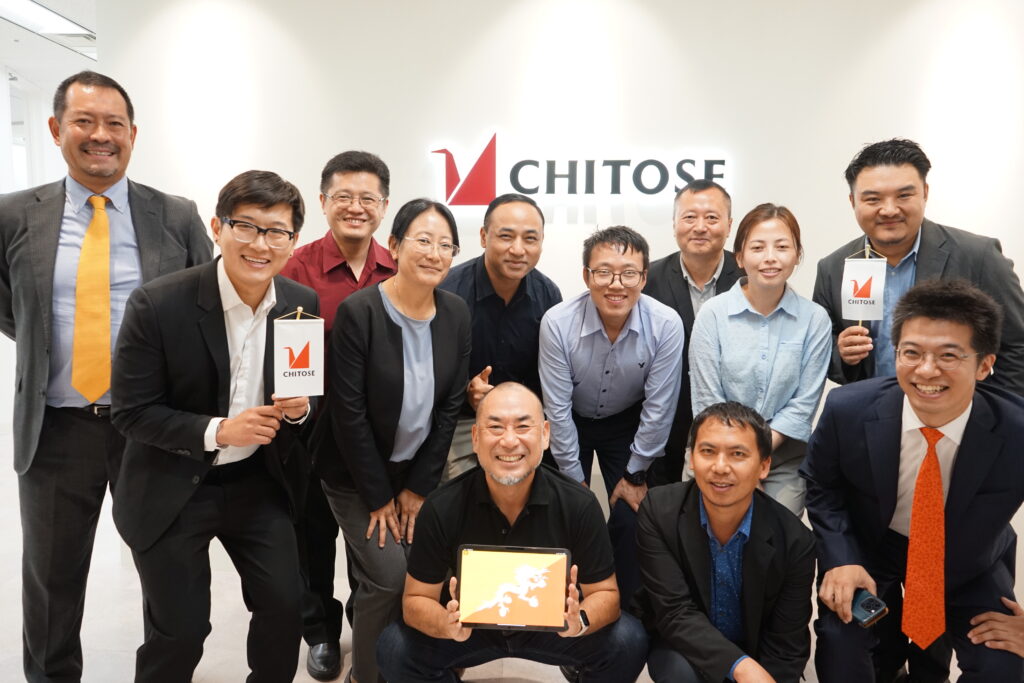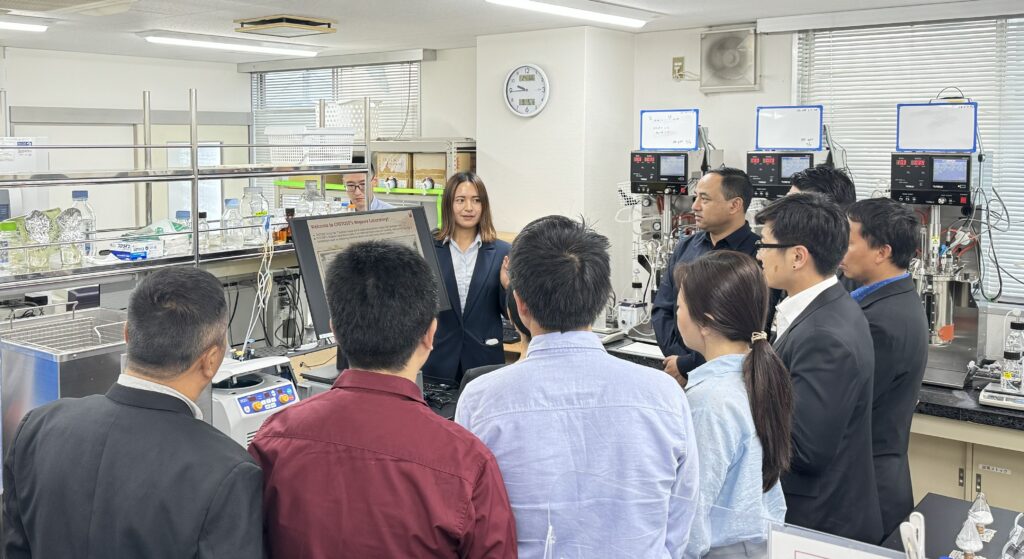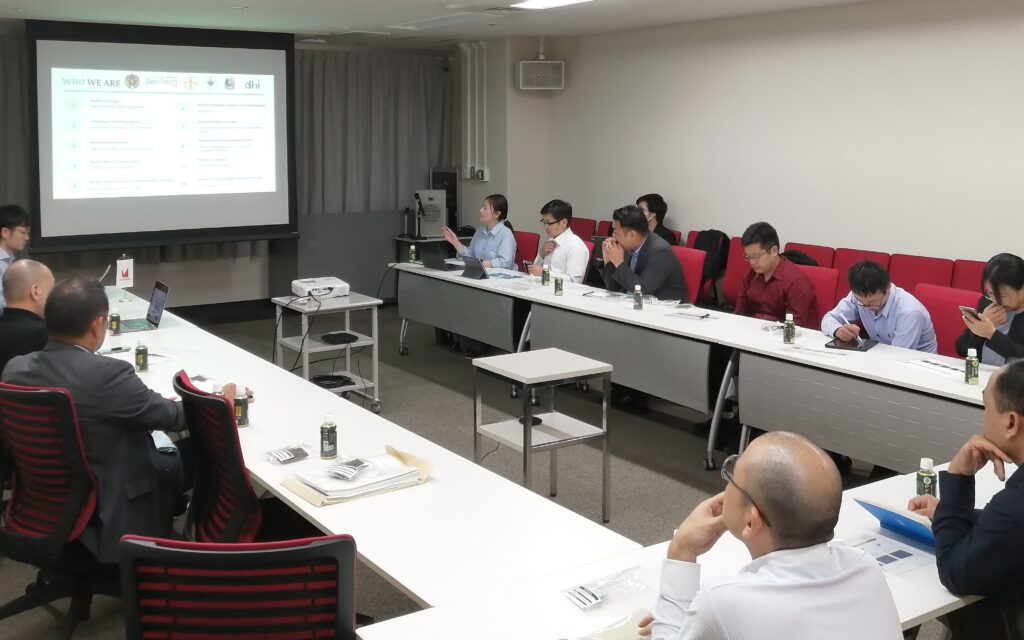EXPO 2025
Special Page
Event / Presentation

On September 5th, CHITOSE invited representatives of the Kingdom of Bhutan to tour the CHITOSE Group’s research facilities.
Although Bhutan is known for its high Gross National Happiness (GNH) index and rich natural environment, it faces a variety of public health challenges, including difficulty in accessing basic medical care in mountainous areas, an increase in non-communicable diseases, as well as a growing aging population. In order to solve such issues, Bhutan is shifting its policy to emphasize disease prevention and aims to build a digital health platform that will integrate and manage medical information.
The tour was held with the aim of deepening technological exchange between the two countries, with consideration to the rising interest in the biotechnology field in Bhutan. CHITOSE introduced its fermentation control technology that employs AI, cell development technology for biopharmaceutical manufacturing, and microalgae production technology. Principal BioEngineer Koji Bando and Senior Manager Yuki Kawaharada, who guided the group on the day, welcomed everyone wearing yellow and orange ties, the colors of the national flag of Bhutan.

At the Nogawa laboratory, the participants were shown CHITOSE breeding technology, which has been the company’s core technology since its founding, and the latest AI fermentation control technology, the pride of CHITOSE Metrics Division. The detailed explanation of the bioproduction management system that utilizes AI for cultivation optimization was followed by a dynamic Q&A session.

At the KSP laboratory, we introduced highly productive CHO-MK cells designed for industrial application in antibody drug manufacturing, as well as the domestically-developed novel HAT cells, designed for high-yield production of vectors used in gene therapy. The tour continued with explanations about the cultivation methods for microalgae and the production technology for extracting biomass from them.
Participants engaged in discussions about the future potential of biopharmaceuticals and their development, as well as the feasibility of cultivating microalgae within each of the countries. The discussion was followed by the interactive session, where the guests touched and held algae samples.

Later, a meeting was held with Tomohiro Fujita, CEO of the CHITOSE Group, to further discuss the company’s activities, as well as its experience and expertise in healthcare sector business development. The Bhutanese side also gave a presentation on the national situation, the challenges they face, and their concept for a digital health platform.
Due to its geographical and geopolitical advantages – a small population of 780,000, unique terrain, and limited international migration – Bhutan is able to effectively collect data on public health and biodiversity. In addition to using the accumulated data to improve the health of the citizens, CHITOSE suggested leveraging it in cutting-edge research and new industry development. Opinions were exchanged regarding the methodology of this initiative.
The event provided insights into the potential of CHITOSE technologies and served as a significant step towards future technological partnerships and collaboration. Moving forward, we will continue to deepen the exchange of technology between the two countries and further strengthen our cooperation in creating a sustainable future together.
Related Information
[Chitose Laboratory Corp] Inheriting the professional skills of cultivation technology from data by AI×fermentation
[Chitose Laboratory Corp] Stable Cell Line Development Service for Biopharmaceutical Production